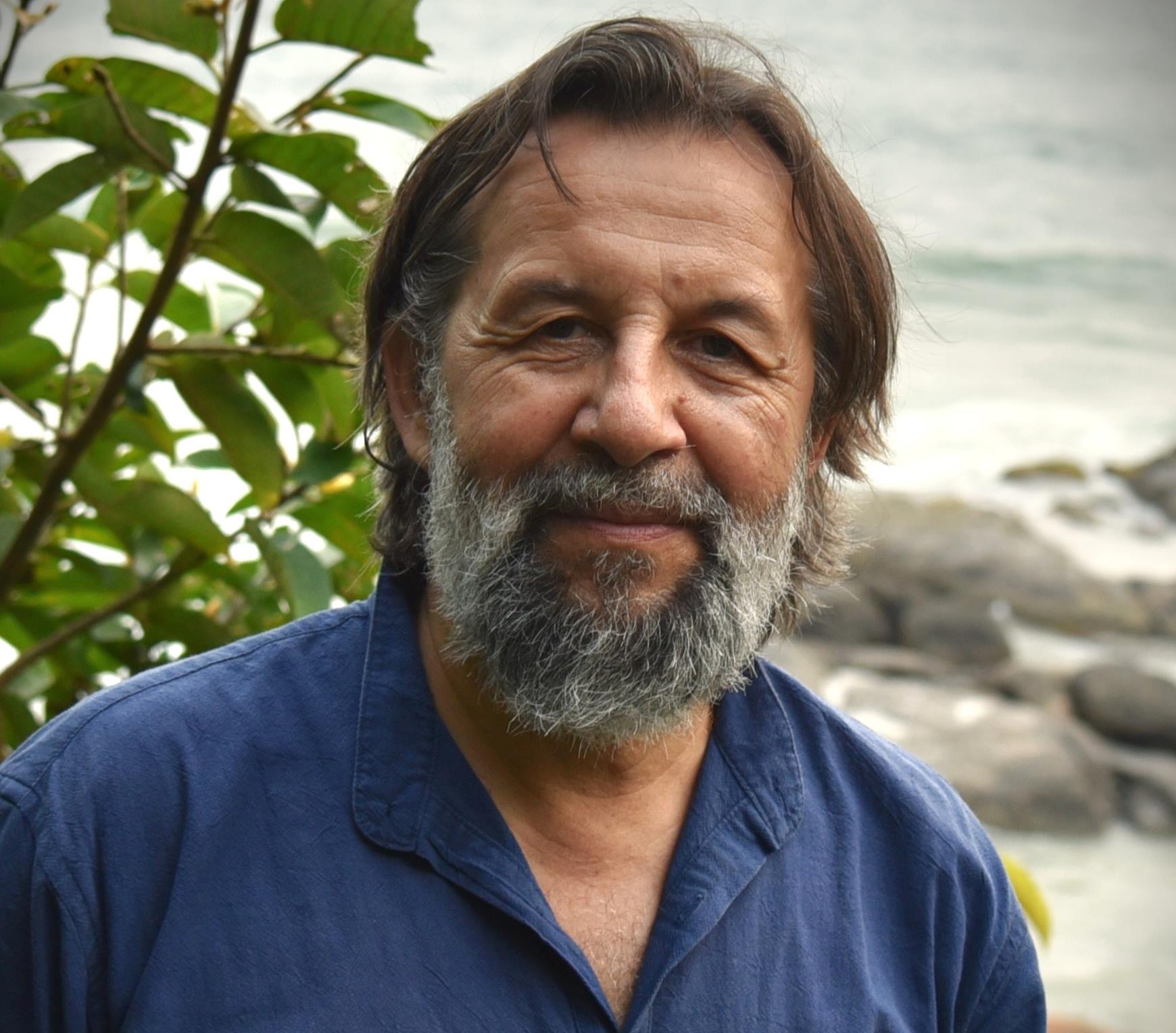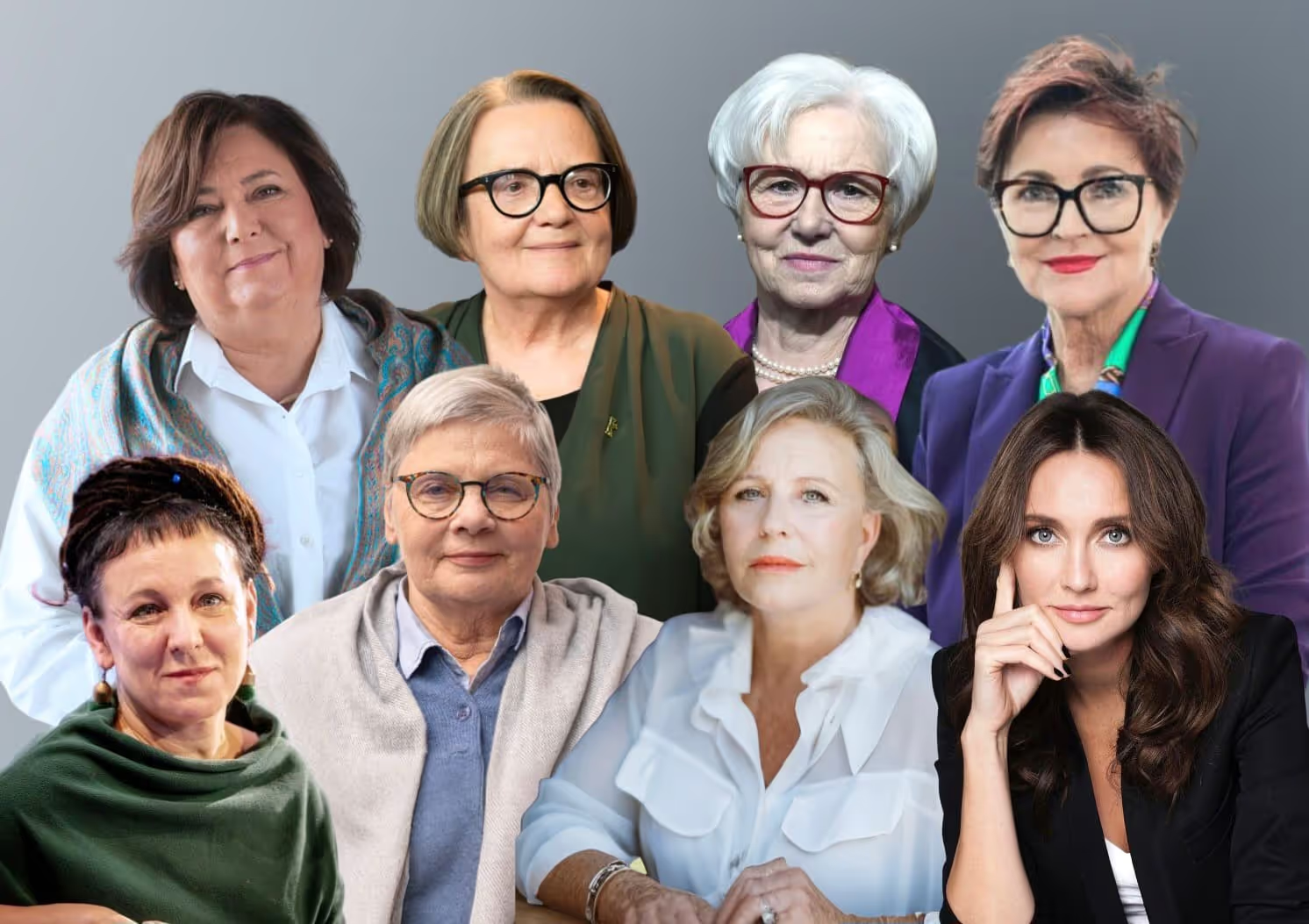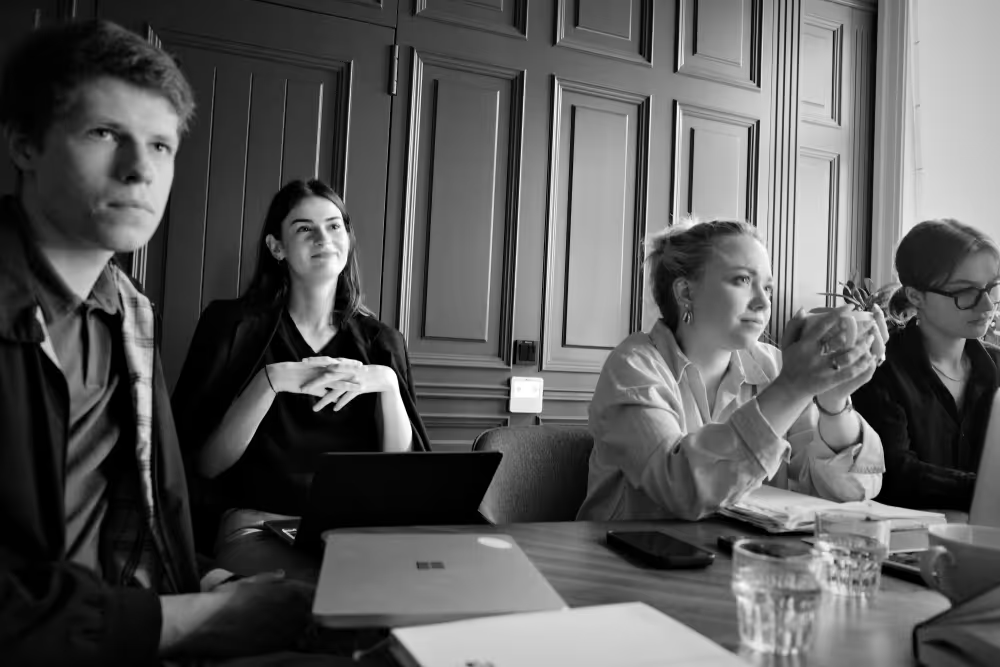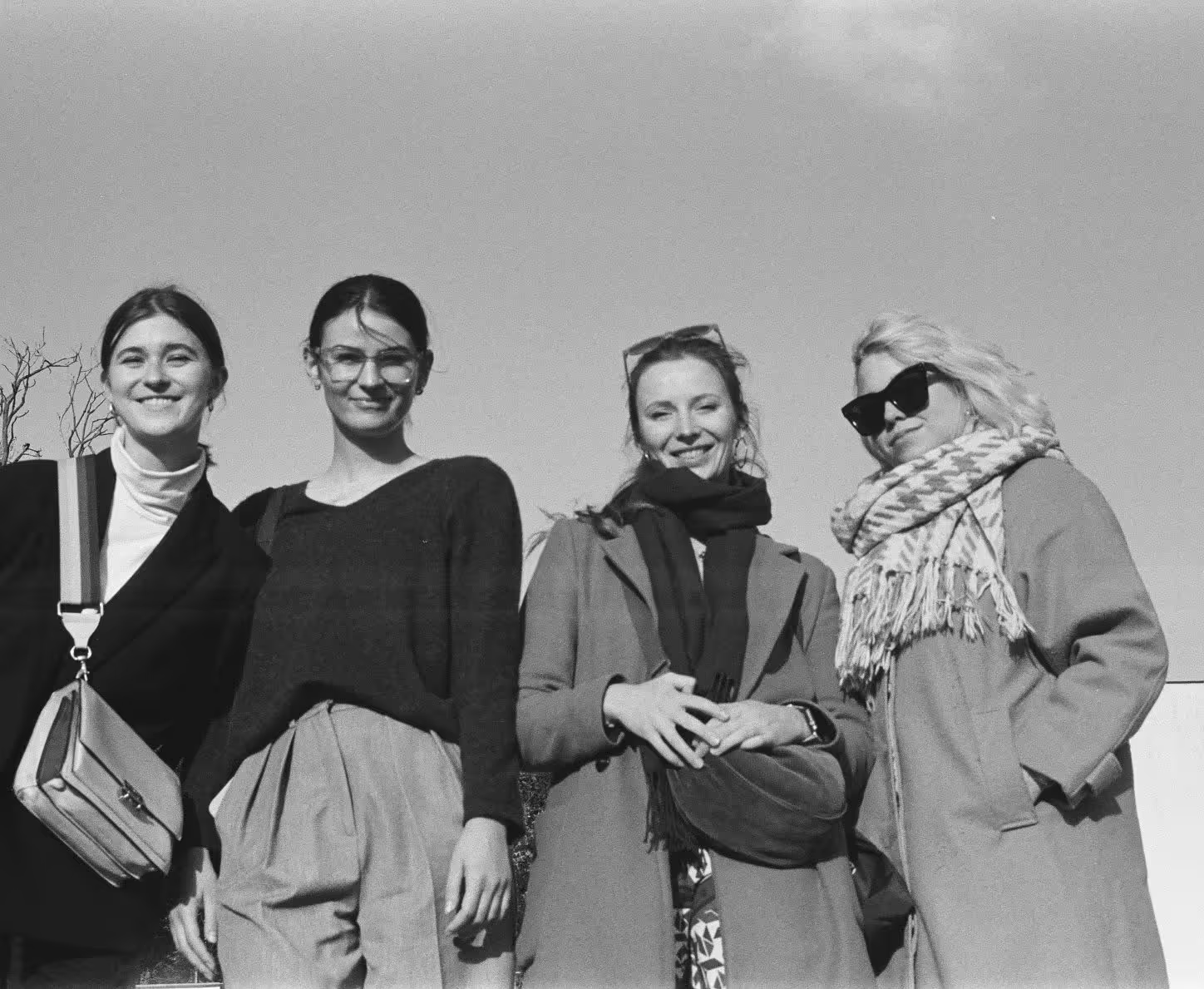Support Sestry
Even a small contribution to real journalism helps strengthen democracy. Join us, and together we will tell the world the inspiring stories of people fighting for freedom!
Time wasted on roads instead of bridges
Olga Pakosh: In light of what is happening today, how can we talk about building bridges?
Krzysztof Czyżewski: We first need to realize how few of them we have actually built.
Why?
We were given time—time we largely failed to use. Today comes the test of what we did with it, and it turns out it could have been much more. Too few bridges were built—between Poles and Ukrainians, but also many others. Because all these bridges are interconnected. Fear of the other very easily turns into scapegoating—of the foreigner, someone of another nationality, culture, or skin color. And this shows that we could have done far more, especially from the bottom up, at the grassroots, organically. We lacked investment in local government, in education—from primary school through every level—in cultural and community-building activities. Had we put more effort into these, we would be in a completely different place today.
That’s why the work of rooting is so important—in a place, in oneself, in our identity. When the full-scale war in Ukraine broke out, refugee children came to Krasnogruda. One of the first projects we did with them was an animated film.
The children called it Pokój (“Room/Peace”), because they discovered that in Polish the word has two meanings: “absence of war” and “my space to live.” It was precisely this space they had lost—their room, their home—and that’s what they longed for. They also understood that the one who starts a war is the one who has no room of their own.
People deprived of rootedness and a sense of community are more easily swayed by ideologies that lead to hatred and violence. That’s why we need time to rebuild this rootedness, which our region still lacks because of its history of wars and regimes. We simply wasted the time we were given.
We invested in roads—because that’s easy, because every politician wants to boast about them. But investments in schools, cultural centers, civic organizations—in people—were never a priority.
And yet those are precisely the investments that could give us the strength to stand against hatred and war.
The Comfortable Role of the Victim
What is hatred?
No one is born with hatred. It always has a source, usually in the early stages of life. Something must have happened in our environment—in the family, at school, in the community. Something that made us susceptible to this illness called hatred.
To confront it, we must go back to its beginnings. To the moment when a child or young person found themselves in a situation where no one defended them, protected them, or taught them how to cope with harm. It’s the environment that shapes a person, and if it is not built on peace, it creates space for hatred. Hatred often grows out of emptiness, resentment, and a sense of loss. A person who experiences pain at the hands of others, lacking the tools to understand it, builds a defense mechanism: they start believing that hatred will make them stronger.
Imagine a young Czesław Miłosz. He dreams of Western Europe, of Paris—and during a trip with friends, he reaches a bridge on the Swiss–French border. There he sees a sign: “No entry for Slavs, Gypsies, Jews.” Such a blow can trigger two reactions. One is to respond in kind: return home and put up a sign against the French or the Germans.
But one can also react differently: do everything not to answer hostility with hostility. Yet to choose this path, one needs support—spiritual, moral, found in an authority or a community.
We encounter such “signs” even today—in a metaphorical sense—living in multicultural societies. We often, and unwittingly, hurt others with words or gestures. These are moments when we can take Miłosz’s path: to dedicate our life and work to opposing the philosophy of exclusion. But choosing this path means loneliness. As in the case of Miłosz, who in interwar Vilnius—governed by nationalists—was told that history did not belong to him.
The “signpost philosophy” always builds a fortress. It assumes one must close off, build walls, and cast outsiders in a bad light. It’s the feeling that strength comes from isolation.
I have met people who build such fortresses. Today this is very visible in Ukraine. My Ukrainian friends wrote to me after February 24th: “I hate. That’s my state of mind.” I understand this. In the face of aggression, one builds defensive embankments, protects family and community. Perhaps a soldier needs hatred as a weapon—it gives determination and strength.
But the crucial question is about the boundary. Between the person who can treat hatred like a shield, then set it aside after the fight and return to normal life—and the person who becomes its captive. If you can put it down, hatred remains a temporary weapon. If you cannot, the illness takes control. Then hatred doesn’t end with the war—it begins to destroy life, relationships, one’s entire world.
How can we defend ourselves against hatred in today’s world?
Sometimes a person must build a fortress, but a fortress is not a natural environment for life. When a new generation arrives—our children—they will feel curiosity and the need to go out into the open world. Because a fortress, if accepted as a permanent home, becomes a prison—and everyone wants to escape from prison.
So the question is: if I build a bridge to the other side, risking my own shore and the possibility that an enemy may use it—am I acting against life?
Would it be better to stay on my side and live more safely, more comfortably? This is how supporters of extreme, xenophobic ideologies think: that it’s best to be only among one’s own. Except that in human nature such a scenario never proves life-giving. Sooner or later it leads to illness—xenophobia or hatred.
That’s why courage is always necessary. To resist hatred, we must cultivate inner strength to overcome our emotions. And yet we have a tendency to justify our hostility easily: we pick at resentments, repeat that someone wronged us. It feels comfortable to wear the skin of the victim, because then we are always ostensibly on the “good side.” But staying in the role of the victim also leads nowhere. It breeds weakness and fear—fear of opening up, of encountering the other.
What does this mean in practice? If I, as a Pole, am afraid to admit that in Jedwabne, during the Holocaust, a crime was committed against Jewish neighbors and I prefer to conceal this truth—where is my patriotism then? Where is my courage?
There is no courage in falsifying history. Courage is born when I can look into the eyes of those who were victims, when I do the work on myself. It is difficult, critical work of memory.
If we want to build bridges with others, let’s start with ourselves. Let us ask: are there not painful places in our own history that we should work through—acknowledge, beat our breast, return the truth to others, or at least try to listen? Paradoxically, this does not weaken us—it makes us stronger.
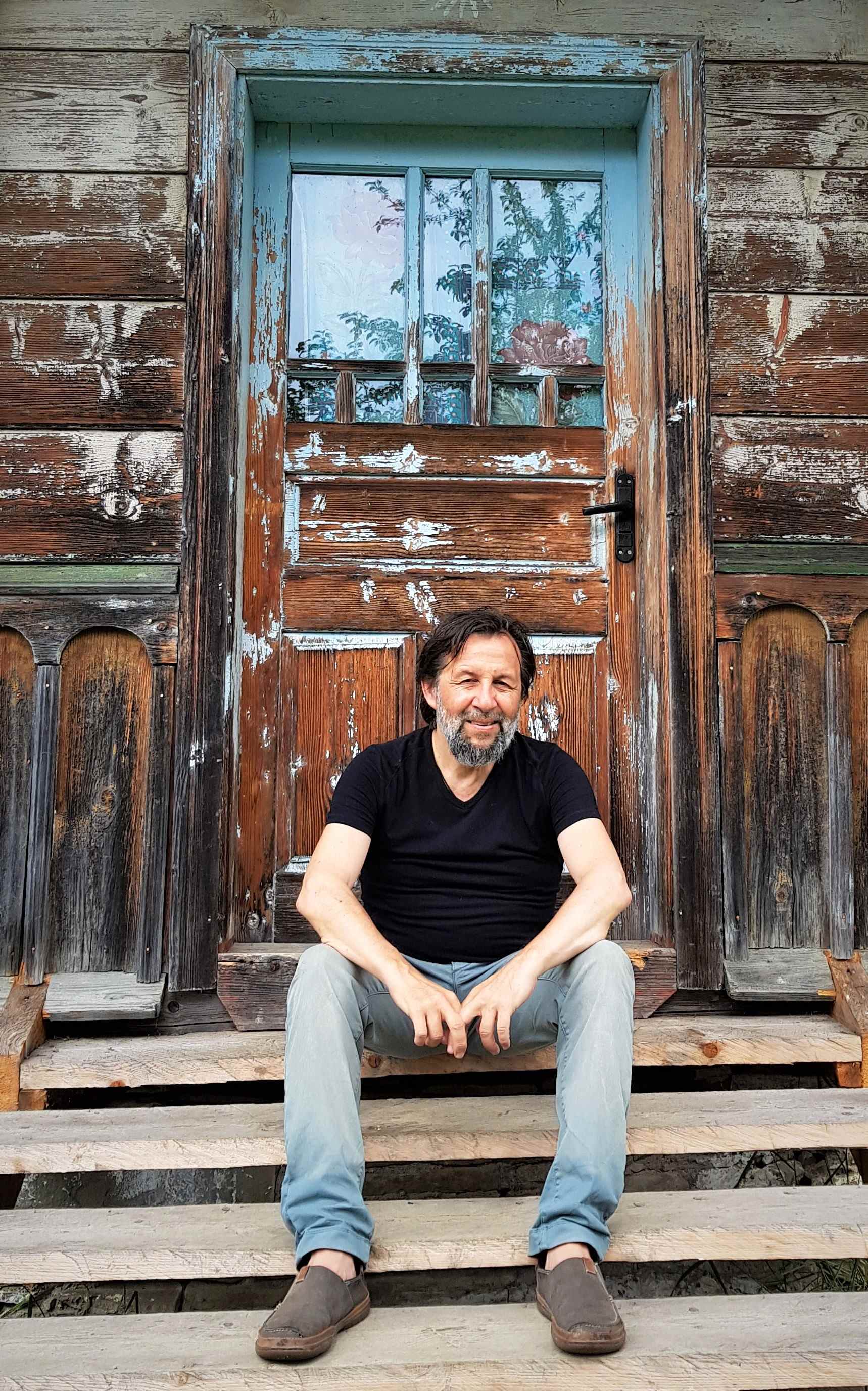
Pop Culture Pure
How would you explain the shift from the immense openness toward Ukrainians in February 2022 to the current state, where some say that help was unappreciated or that newcomers “give nothing in return”? Is it fatigue, lack of courage, or something deeper in human nature?
What’s missing is something else. What’s very dangerous is what politicians often try to convince us of: that our attitude toward Ukrainians must be conditioned by interest. In my view, the spontaneous, magnificent reaction of people was simply a human reaction. No one asked then what we would get out of it. It was as Pope Francis said in Lampedusa about the Church: it should be like a field hospital.
It doesn’t matter what your faith, nationality, or skin color is—you simply serve a person in need. This is an absolute human duty. Without asking about interest, advantage, or profit.
If we step down from that level—and today many try to frame help for Ukrainians in terms of budgets, gains, or losses—we reduce the field hospital to a marketplace.
And that’s exactly what we see in the world. It used to be unthinkable that states would give weapons only in exchange for raw materials. Today this approach is part of the political mainstream. It’s a moral collapse.
Of course, rationality, logic, and common sense are needed—especially in politics and strategic decisions.
At the same time, we must act on a human level. Because we are Christians, Poles, Ukrainians, people. There are no narrow categories here. It’s not about nationality or religion, but about a human being in need.
The first wave of refugees from Ukraine made this very clear. I remember Viktoria Amelina [a Ukrainian writer who died in hospital on July 1, 2023, from injuries sustained during a Russian attack on Kramatorsk—ed.] in Krasnogruda telling me that at the border she felt treated better than refugees from other countries. She was privileged simply because she was Ukrainian. That shows the limit of our wonderful Polish–Ukrainian period of solidarity—right next to the Belarusian border, the symbol of non-solidarity.
When such selection creeps into our responses, we see a symptom of illness: our assistance and attitudes are no longer fully true or natural. It’s not about judging people—we’re all in the same boat; we all have oversights and limitations. But it’s also part of a great moral decline, a degradation we’re witnessing worldwide. It shows how much fear, anxiety, and uncertainty we harbor, and how little of the peace that children talk about. And how easily populist politics can lead us astray.
Why does hatred take root in us so easily? Is it politics, ideology, indoctrination (imposing certain ideas and beliefs on a person — Ed.)?
Or perhaps pop culture? And culture? How is it possible that in a democratic society we separated pop culture from culture—that pop culture is meant to reach people who “won’t understand” culture because it’s too difficult, not for them?
If we accept that conversations about values, morality, and understanding the other are intended only for those in that “other” culture and not for everyone, the tragedy begins.
The tragedy is that in a democracy we don’t trust people. We don’t believe they can make difficult decisions themselves, hold values, and take responsibility for them.
We persist in the belief that we must speak to people in a simplified way, otherwise they “won’t understand.” Politicians and the media often take this path. They create a “pop-cultural mush,” and we pay the price. We’ve created pop-cultural politics, pop-cultural politicians, and politics characterized by leveling down. It’s the result of our underestimating culture and failing to understand that conscience—our spiritual culture—is an obligation for everyone, without exception.
Szewczenko or Miłosz are for everyone, and with everyone we can talk about values, demand reflection, action, and responsibility. It’s like the wisdom of the Gospels—they are not reserved for the chosen. We have lost faith that this has anything to do with everyday life. Even people who consider themselves Christians often craft their own “life-gospel,” at odds with the true Gospel, while politicians offer a discourse full of xenophobia and hatred.
Here lies a serious neglect, for which we are now paying the price. A vast arrogance and paternalism that we have allowed to speak. As a result, we’ve lost many citizens—people who felt utterly marginalized not only in terms of material well-being but also in terms of trust and co-responsibility for the world’s affairs. Pushed aside and often stigmatized as xenophobes.
I never use such labels for anyone. Because when you call someone a chauvinist or a xenophobe, you put them against a wall. You strip them of the ability to move—and thus the chance to change. Culture should provide space and time for us to change, learn, and mature. That’s what our culture often lacks: patience for process, the understanding that change takes time.
The history we come from, and the new tragic circumstances, place demands on us that often exceed our strength. Sometimes we are too weak to bear them. But does that mean we are immediately bad—and forever? Perhaps we can still be partners—for conversation, for cooperation, for living together—even if we handle our emotions differently.
We are very good at cornering people. “You are this—period.” Meanwhile, we should learn to understand ourselves and others, to transcend our own limitations, to practice the art of dialogue—because only then is true transformation possible.
You speak of empathy, which was so visible at the beginning. But haven’t you noticed that today the word “neighbors” has practically disappeared from the media when we speak about Ukrainians?
“Neighborhood” is a good word, isn’t it? A neighbor is already part of our life. And if we drive them out, a feeling arises… that there is no threat, and no need for effort or even sacrifice, because a neighbor demands more from me.
A neighbor is someone you can rightly offer hospitality to, someone you can share with, someone you coexist with and share responsibility for something with. Simply by existing, a neighbor touches deeply rooted values in us—and puts them to the test.
If we succumb to confrontational, hateful ideology, we push out words like “neighborhood,” “kinship,” “the common good.”
I won’t even dwell on the fact that politicians try to convince us that it’s in our interest to cut ourselves off from Ukraine—which is absurd, because Ukraine provides us with security. If we were rational and sober about what is truly good for us, we should do everything to make our neighborhood as deep and as close as possible.
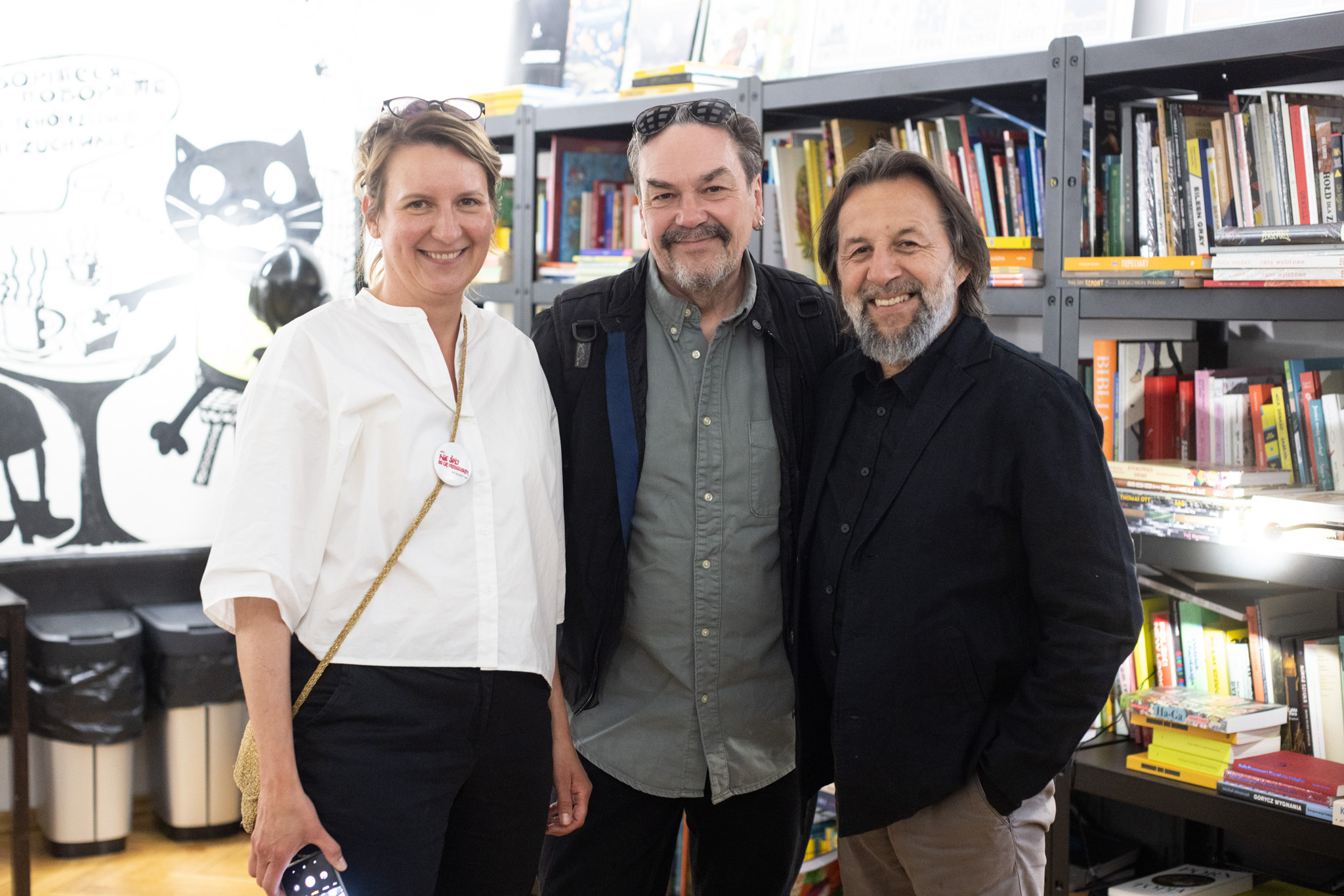
Meanwhile, we allow ourselves to be ruled by what is irrational or aimed at short-term effects (which amounts to the same). We let weakness work within us and perceive threats where they do not truly exist.
I would also like to address Ukrainians—to understand that sometimes it’s not worth attaching too much importance to these momentary crises—just as in the life of an individual, so in a collective body we sometimes succumb to weakness, and politicians draw out the worst in us. We should not believe that this is a permanent state, nor should we immediately put Poles against the wall, assuming that “this is how they are now.”
Of course, we should set standards for ourselves—now I’m speaking about Poles in the context of the situation in Ukraine. But at the same time, it is worth giving ourselves a chance to change: to be more understanding, more empathetic, to trust that change is possible. I also don’t attach excessive importance to momentary gusts in social media—those winds change very quickly.
I would rather focus on long-term, grassroots, organic building—creating things that won’t bear fruit today but will do so in a few years. Because trust has extraordinary power. If I, Ms. Olga, believe that even if you (purely hypothetically) feel prejudice, resentment, or hatred toward me, it won’t be forever—and I don’t close myself off to our mutual presence—and if I believe our relationship can change—then you will not remain indifferent to that. You will sense in me not an enemy, but a person open to change. That is precisely what releases positive energy between us.
Sometimes it demands more of us than we could realistically expect—greater generosity than daily life calls for. And that’s what builds a person, gives extraordinary strength. For me, beauty lies in the Ukrainian word peremoha. When I travel the world, I always urge people to learn it not in translation (“victory”) but in its Ukrainian meaning.
Peremohty, mohty—it means the ability to act beyond one’s own capacities. Even if we have limitations, traumas, weaknesses, there is such a thing as peremohty: to be able to do more than we can. And that is true victory.
To achieve this, we must extend ourselves a credit of trust, create good energies that allow us to do more than we believe possible. Two years ago our borders opened, solidarity emerged, and suddenly we were able to show a better face—better than before, in the context of the Belarusian border. Even those who previously stood for radical confrontation and closing the border to refugees could not silence their own consciences in the face of need—children in the Białowieża Forest who needed a simple glass of water. You can’t calm your conscience that way. Ideological arguments aren’t enough.
And suddenly Ukrainians appeared, toward whom we could be entirely different. It was a moment when we became better than ourselves, though such moments never last long. Our wisdom should lie in knowing how to appeal to what is best in us, building on that, and not giving up the work of maturing into those values.
There Are More People of Good Will
After the president vetoed the law on assistance for Ukrainian mothers and as a wave of hatred grew, one of my colleagues asked: what should I do now? Where should I go? I chose to stay in Poland, and I don’t know what I should feel or how to live, if I’m even afraid to speak Ukrainian with my child on the street.
For a moment I thought that it’s increasingly difficult today to advise your colleague where she might go to be better off. There are fewer and fewer such places in the world. Of course, that is no excuse for what’s happening in our country. But it is one of those painful lessons we receive from the modern world. I return to the idea that we are part of communicating vessels. What happens here is interdependent with other places in the world, and we often struggle to cope with that.
Let’s have no illusions: we live in an era of moral decline, a degradation of humanism.
Of course, I would like people like the one you describe to remain in Poland—because we need them. I don’t mean this in terms of budget revenue, though that’s obvious. That’s not the logic I’m using. These people are needed so that we can grow into the maturity demanded of us by the situation in the world—and so that we have a chance to change our own attitudes. Your colleague, experiencing intolerance in Poland yet still engaging in building good neighborliness, has a chance to be part of a process of change—one that won’t happen overnight and will surely bring her suffering, but in the long run it carries hope.
Because in this process there is strength and potential—we change the world where we are, not by endlessly fleeing elsewhere.
My philosophy largely rests on changing the world from within. There is a growing temptation to flee from various environments, institutions, religions, or countries because something seems unbearable or contrary to our beliefs. But that’s escape. Then we become perpetual nomads.
The answer is to stay, to find a room, to take root, and to work—with an understanding of all the conditions that come with it. Such rootedness is not the same as returning to a lost place (though may such returns be possible). It is staying within a new situation and learning it mutually—this gives a chance for growth.
A second reflection is that there are more of us than we think: us, people of good will. We live in a world that often minimizes our presence because it amplifies drama, conflict, pain, and injustice. The voice of harm reaches the media; it is harder to express good and positive emotions. This is also my work: to help people give voice to the good emotions that, I believe, dwell in everyone—even in those who hate deeply. In everyone there is a spark of a need to do something good. The problem is often how to do it, how to give it form.
We lack holidays, language, and culture for this—and politics even more so—because we live in a world where harm, pain, and hatred are easy to express. Sometimes it’s about a wise perspective: perhaps there are more of us than it seems; perhaps the politician who has won and seems monstrous does not, in fact, have all our votes.
Where is that other half of Poland? It exists—and there are ways to reach it. It’s difficult, but it gives hope.
I’ve lived in Poland for 10 years, and I’ve heard from various people that humans are inherently good—which I never heard in Ukraine. Two Poles also told me that even if people do something bad, they later regret it.
What I’m talking about is close to what I earlier called the spark of good in every person—something hard to bring out. I speak of it because it was passed on to me by people who went through real hell. Starting with Miłosz, who survived two world wars; with Holocaust survivors; with Bosnian Muslims whose relatives lie buried in Srebrenica. They could have said that the world is evil, that our actions are meaningless in the face of the destructive forces of dictatorial regimes, that building bridges is weak against military and ideological violence. And yet it was precisely they who taught me not to lose faith in the good—in that small light present in every person, regardless of which “side” they are on.
They taught me that it’s worth working to help others and ourselves—to free the good within us, to find words and time so that our conscience can be spoken, not stifled. And despite the “sober skeptics,” whose voice I respect, and despite having witnessed the core of darkness revealed by wars, I stand with my teachers, who allowed themselves neither nihilism nor agreement that good in this world is doomed to defeat.
Because if they weren’t right, would we be able to have this conversation at all, Ms. Olga?

Journalist, editor. She has lived in Poland since 2015 and has worked for various Ukrainian publications: «Postup», «Livyi Bereg», «Profil» and «Realist.online». She is the author of publications on Ukrainian-Polish cooperation, covering topics such as economic and border issues, cultural heritage and commemoration. She is also a co-organiser of journalistic initiatives promoting Ukrainian-Polish friendship. She has worked as a trainer for the EU programme «Women’s and Children’s Rights in Ukraine: Communication Component». Her interests include personal development and neurolinguistic programming, among others.

